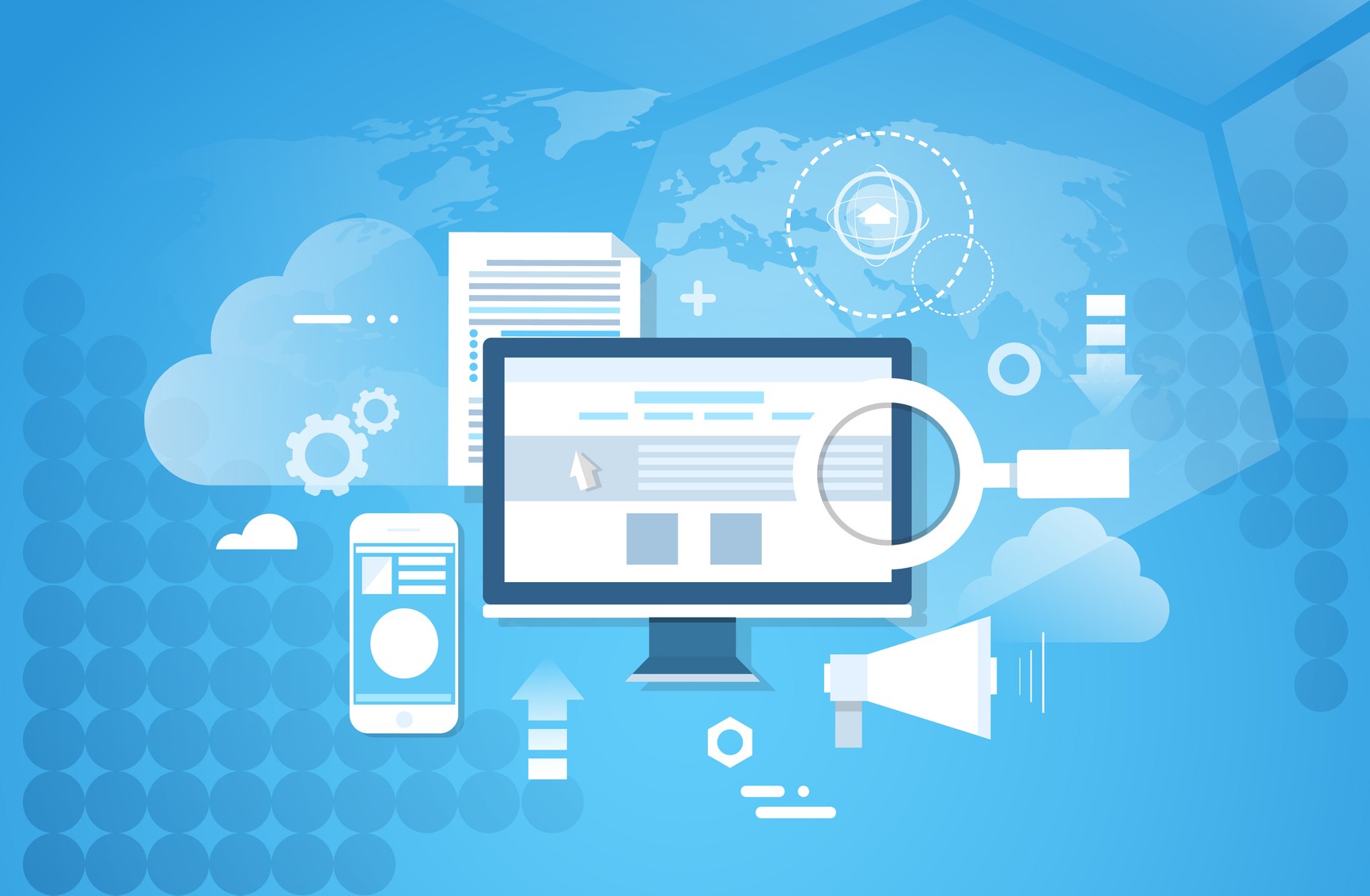There’s a lot of buzz around Large Language Models right now. Tools like GPT, Claude, and others are changing how we create content, automate workflows, and engage with users. But with all the hype, it’s easy to jump in without asking the right questions first. Not every LLM is the right fit for every team or goal.
Before integrating AI into your content strategy, it’s worth stepping back to evaluate what you actually need, what different platforms offer, and how to avoid creating more work down the line.
Define Your Content Strategy Needs
Before picking a platform or writing your first prompt, take a moment to think about what you actually want AI to help with. Are you trying to speed up blog production? Create more consistent social media content? Maybe you’re looking to personalize product descriptions or tighten up tone for a regulated industry.
Whatever the goal, it’s important to be clear about it upfront. Not all LLM tools do the same things well, some are built for volume, others for control or customization. Framing your decisions around your real content goals (not just what’s trending) makes it a lot easier to choose the right setup and avoid headaches later.
Content Strategy Checklist
What type of content are you producing regularly?
- Blog posts or long-form articles
- Social media content
- Product descriptions
- Email campaigns
- UX microcopy or in-app messaging
- SEO-optimized landing pages
What do you want help with?
- Automating repetitive writing tasks
- Scaling content output faster
- Improving tone and consistency across platforms
- Generating content ideas or outlines
- Personalizing content based on user data
- Translating or adapting for multiple audiences
Do you have any specific needs or constraints?
- Content must match strict tone/voice guidelines
- We work in a regulated industry (legal, healthcare, etc.)
- We need multilingual or localized content
- Data privacy is a concern (no third-party sharing)
- We need to integrate with existing tools or CMS
Once you’ve got a better sense of what you actually need, it becomes a lot easier to evaluate which LLM tools make sense and which ones might be overkill.
Hosted, Hybrid, or Open-Source? Choosing the Right LLM Setup
Once you know what you're trying to accomplish, the next step is figuring out how to actually bring an LLM into your workflow. There’s no one-size-fits-all setup, some teams just want quick content generation with minimal setup, while others need more control, privacy, or customization.
| Approach | When to Choose | Examples |
|---|---|---|
| Hosted APIs | Fastest to get started, no infrastructure needed | OpenAI, Jasper, Writer |
| Fine-Tuned | When you need tight tone control or domain-specific language | GPT via Azure, Claude |
| Self-Hosted | Best for privacy, long-term cost savings, or custom use cases | LLaMA, Mistral |
A Few Things to Think About:
Speed vs. Flexibility... Hosted APIs are great if you just want to plug in and go. But if you need deeper control, like enforcing brand tone, avoiding off-topic responses, or working with specialized language, fine-tuned or self-hosted options give you more flexibility.
Budget Implications... Hosted solutions usually charge per token or word, which can add up fast at scale. Fine-tuned models might cost more upfront but can save money in the long run. Self-hosted is typically the cheapest over time, but only if you’ve got the right team to manage it.
Dev Team Capacity... If you don’t have developers or machine learning expertise in-house, stick with a hosted option. If you’ve got a tech team that’s comfortable with infrastructure, APIs, or containerized environments, you can explore more custom setups without too much friction.
Evaluation Criteria for LLM Fit
Not all LLM tools are built the same and even the big-name platforms can vary a lot in how well they fit into your content strategy. Once you’ve narrowed down your goals and general setup (hosted vs. fine-tuned vs. self-hosted), the next step is comparing your options with a few key factors in mind.
It’s not just about how “smart” the model is, but how well it actually fits into your team’s workflow and priorities.
| Criteria | What to Look For |
|---|---|
| Content Quality | Does it produce fluent, natural content? Can it match your brand tone? How often does it go off-topic or hallucinate facts? |
| Ease of Use | Is the interface clean and intuitive? Are there built-in tools for prompt testing, editing, or analytics? |
| Integration Options | Can it connect easily to your existing stack (CMS, CRM, email tools)? Are there APIs, plugins, or automation hooks? |
| Security & Compliance | How is your data handled? Are there clear terms around data usage, storage, and compliance with regulations like GDPR or PIPEDA? |
| Cost Transparency | Are the pricing tiers clear? Is there flexibility based on usage? Can you predict costs before committing to scale? |
No tool will score perfectly on everything. The goal isn’t to find the “best” LLM overall, it’s to find the one that checks the right boxes for your team.
If you're a small business focused on speed, ease of use might matter more than deep integration. If you're in a regulated industry, privacy and tone control might top the list.
Sample Workflows / Content Creation Use Cases
Once you’ve narrowed down what you need and started comparing LLM platforms, it helps to see how they actually fit into real workflows. The setup you choose, whether it’s a quick plug-and-play API or a fully custom solution, will shape what’s possible (and how smooth the process feels).
CMS Auto-Generation with Jasper
[Hosted API] Best for Marketing teams or solo content creators who want to scale blogs, landing pages, or SEO copy with minimal setup.
- Jasper connects easily with content tools like Surfer SEO or CMS platforms
- Use templates or brand voice profiles to generate structured drafts fast
- No dev team needed, just log in and go
Product Feeds and Product Copy using OpenAI + Script
[Hosted API + light scripting] Best for ecommerce sites with lots of SKUs and a need for consistent, detailed descriptions.
- Write a script that pulls product data and feeds it into OpenAI prompts
- Generate unique descriptions per item based on specs, features, and tone
- Can be done as a batch job or integrated into your product management system
Social Media Pipelines with Writer + Zapier
[Hosted + Workflow Automation] Best for teams who post often and want to maintain brand tone across multiple platforms.
- Writer helps keep messaging consistent using brand voice rules
- Zapier automates post generation and scheduling via templates
- Ideal for agencies or internal teams managing multiple channels
Email Campaign Variants with Custom Model + Mailchimp API
[Fine-Tuned or Self-Hosted] Best for businesses needing high levels of personalization at scale, especially with compliance needs.
- Fine-tuned model trained on past campaigns, tone guidelines, or segmented audience data
- Generate multiple personalized email versions and push them directly to Mailchimp
- Gives you more control over message tone, risk of hallucination, and privacy
Hosted tools are great when speed matters. Custom models offer more control, especially when tone, privacy, or scale become priorities.
Risks & Oversights in LLM Integration
Even though LLMs can offer huge gains in content output and personalization, it’s easy to overlook important risks during the excitement of early adoption. Many of the biggest issues with AI content don’t come from the tools themselves, they come from skipping key questions before integrating them.
Data Privacy & Compliance
Make sure you know how your chosen LLM handles data. Some hosted APIs retain inputs for training unless you opt out. If you’re dealing with customer data or operate in a regulated space, ask how your data is stored, processed, and protected.
Tone and Brand Consistency
Not all models handle brand voice well by default. If tone matters to your brand (especially in legal, healthcare, or finance), make sure your LLM can follow structured guidelines or be ready to build those rules in.
Hallucination & Inaccuracy
LLMs are great at sounding confident, but they don’t always get the facts right. If you're generating content that includes data, instructions, or anything public-facing, set up review steps or human oversight.
Integration Gaps
Some LLM tools look great in demos but become hard to work with once you try plugging them into your existing tools or CMS. Make sure your pick has solid API access or built-in integrations that actually match how you work.
Hidden Costs
Pay-per-token models can get expensive quickly, especially at scale. Before you commit, estimate usage based on real-world needs and test billing thresholds if you can.
Ethical Best Practices
- Be transparent when AI is used in customer-facing content
- Monitor regularly for bias, inaccurate content, or tone drift
- Collaborate with legal/compliance teams early if applicable
- Respect user privacy and collect consent when needed
Match Tools to Strategy, Not Trends
There’s no shortage of new AI tools out there, but chasing trends without a plan usually leads to frustration (or wasted budget). The best results come when the tech supports your actual goals, not the other way around.
Start small. Run a few internal pilot tests before fully committing. Try a hosted API on a limited use case, like generating social media posts or product descriptions, and see how it holds up over time. Pay attention to content quality, tone consistency, and how well it fits into your existing workflow.
Track performance as you go. Is it actually saving time? Is the output on brand? Are you getting what you expected?
And if possible, stay vendor-agnostic. The LLM space is moving fast, and the best tool for the job today might not be the same one six months from now. By building in some flexibility, you give yourself room to adapt without starting from scratch.




